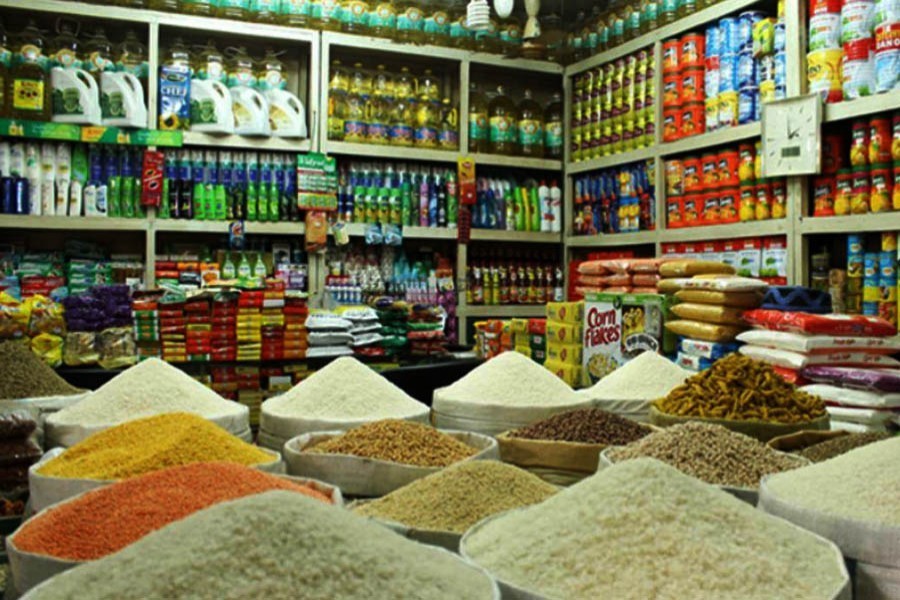Consumption pattern of middle-to lower-income groups has changed significantly under the squeezing impacts of constant economic challenges that force them to trim basic living costs, analysts say.
The disruptive pandemic and back-to-back war in Ukraine and consequent global price rises and currency devaluation are cited as cardinal causes of the squeezes taking place over the last two years.
Economists and consumer-market experts, however, have never observed such significant change in consumption pattern of basic needs.
A large group of people now get adapted to 'can I live without it?' approach as prices of their basic needs surged significantly.
Experts say the upcoming budget, to be placed in parliament tomorrow (Thursday), is crucial for the government to cushion the low-income people's living by way of providing social safety and fiscal incentives.
"Products categorised as essential commodities and entirely dependent on import should be exempted from payment of taxes or have below 5.0-percent tax," says a trade analysts of Bangladesh Trade and Tariff Commission (BTTC), preferring anonymity.
Cost on account of food, education, shelter and transport has gone up sharply during the last two years under the knock-on effects of the Covid-19 pandemic, commodity price hike on the global market, devaluation of the Bangladesh currency taka against the US dollar and the Russia-Ukraine war.
Following job loss and erosion of income, middle-to low-income group of people have been forced to curtail their daily expenditures and reduce consumption of vital goods, experts observed.
In a sample survey in city's three areas, the FE correspondent found evidences of reduction in consumption of some basic consumer products that saw sharp increase in prices in recent times.
Sales of soybean oil, wheat-made products, spices and some other similar products in retail shops went down during the last few years.
Md Mahbub Hossain, the owner of Mahbub General Store in Dhaka's Dilu Road in New Eskaton Area, said some customers switched to unpacked oil, rice, flours and other products to save money as the essentials' prices kept spiralling.
"I have found some well-off sections prefer sunflower and canola oils instead of soybean as price difference got reduced between the commodities," he said.
Also, middle-income group of people shifted to cheaper-brand soaps, shampoos, detergents and some other products as their income eroded, he observed about what appears as falling standard of living.
Maidur Rahman, a resident of city's Mirpur area, sent his family to his hometown Pabna in August 2020 after the pandemic hit the country and educational institutions closed.
Unfortunately, he could not bring back his family members till now as he was compelled to rent a shared room as living cost has gone up significantly in this period.
Ranuma Khatun, a 45-year-old single mother in City's Uttara area, got her nine-year daughter enrolled in another school last March, shifting from a renowned English-medium one, being unable to bear the expenses with her salary.
"I found it difficult to continue the payments after meeting living expenses as the entire essential commodities' prices and house rents went up," she rues.
Dr M Masrur Reaz, an economist and founder and Chairman of Policy Exchange of Bangladesh, says the consumption patterns of low-and middle-income groups of people have changed while it remained unchanged for well-off section.
"People can adjust cost of food, accommodation and education downward but it is not possible in case of transportation," he notes.
Cost of transportation escalates with the fuel-cost hike.
"The government will have to be proactive to negotiate with the fuel-supplying countries to ensure uninterrupted supply of the energy at a reasonable cost," he suggests.
Syed Shamim Reza, former leader of the Real Estate and Housing Association of Bangladesh (REHAB) and Managing Director of Imperial Consultants and Development Ltd, says apartment sale dropped alarmingly due to increase in raw materials' prices and erosion of income of most people.
"Well-off sections are not affected with the price hike but survival of real-estate business is at stake as majority people are unable to purchase the apartments by paying higher prices," he says about economic fallout from the crunch.


